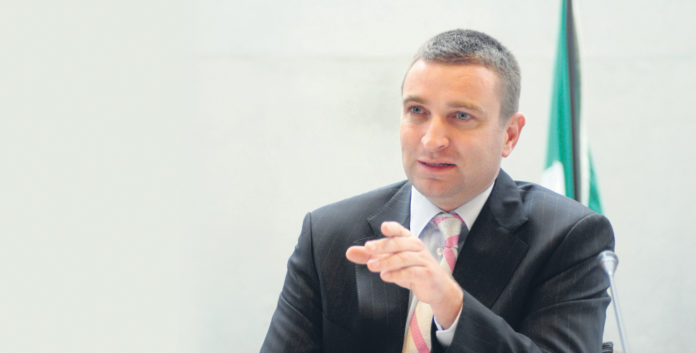
FIANNA Fáil TD Niall Collins has warned of the dangers of the increasing number of children in Direct Provision.
Figures obtained by Fianna Fáil indicate that there are 6,082 people in Direct Provision centres around the country. This includes 1,674 children, up from 1,094 in 2016. The data also shows that a number of centres have surpassed their capacity limits.
The figures also show that a total of 194 people were in Direct Provision in Limerick in July 2019. There were 45 children in Knockalisheen centre in Meelick. Four of these were aged between 0 and 4 years, 28 between 5 to 12 years, and a further13 aged between 13 and 17.
“It’s 20 years since the Direct Provision system was introduced as a temporary measure. Unfortunately, it’s become the norm and it’s leaving children exposed to some very questionable living conditions. Simply put, Direct Provision centres are not safe environments for children,” Deputy Collins said this week.
“There’s a been a massive increase in the number of children in Direct Provision, which is really worrying. At present, there are 1,413 children under the age of 12 living in direct provision. As well as sharing a room with their own family, there can be cases where families from very different cultural and ethnic background have to share very small spaces, which can be tough for young children.
“The centres often have communal bathrooms and children have to share with grown men and women. The Irish Refugee Council have previously warned that children can be exposed to violent and sexual behaviour, which simply cannot be tolerated.”
According to the Limerick politician, families are essentially living in “limbo”, sometimes waiting for years to progress through the asylum process, and with not much to survive on.
“Adults receive an allowance of €38.80 per week and €29.80 per week for children. These are miniscule amounts of money,” he declared.
In response to a parliamentary question on the matter, Minister for Justice, Charlie Flanagan said, “The State is obliged to offer accommodation and ancillary services to persons who enter the State and seek international protection.
“While an international protection claim is being examined, the Reception and Integration Agency (RIA) offers accommodation and related services to anyone without means. This includes all meals and utilities. It is a whole-of-Government approach to supports and services for applicants.”










